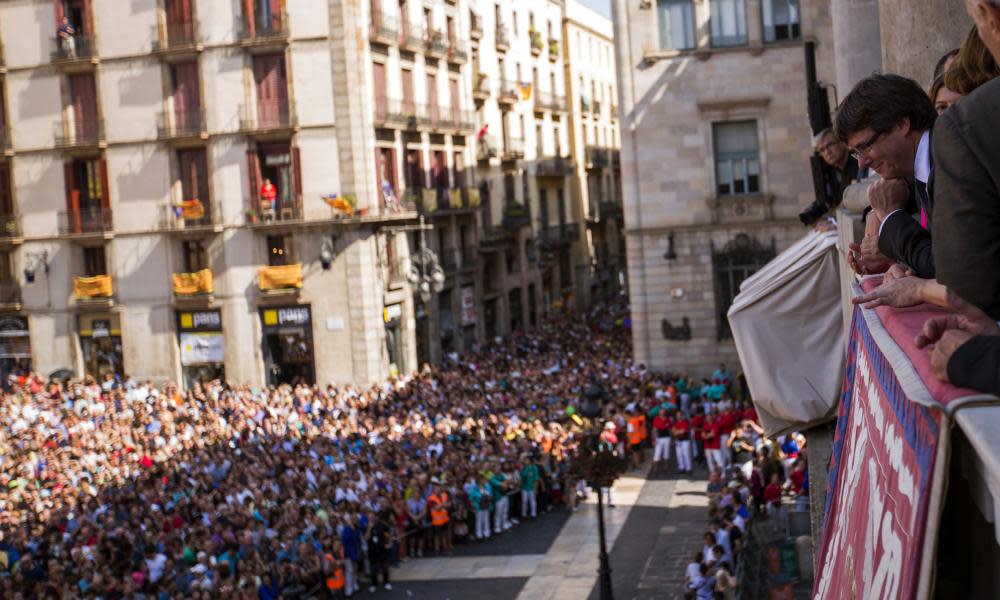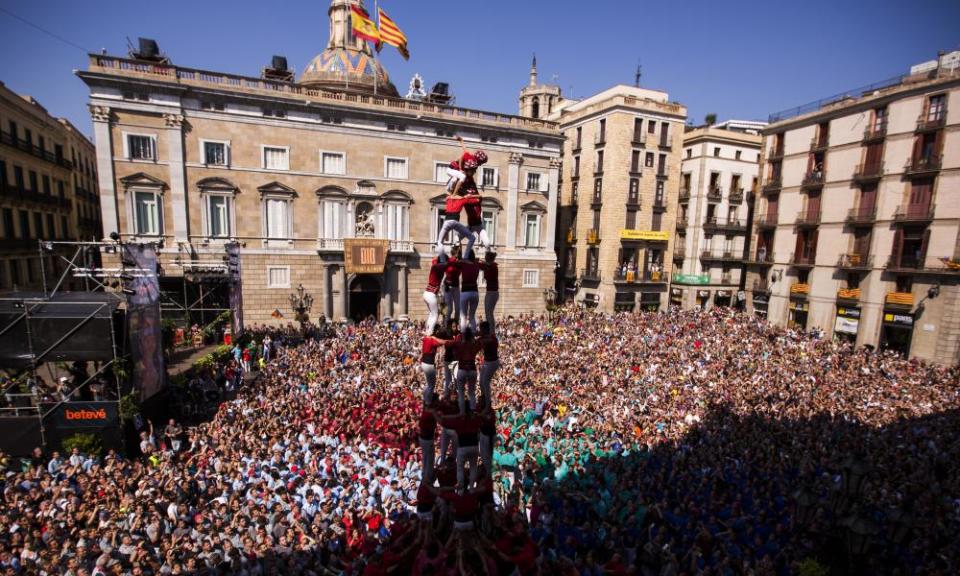Spain’s attorney general refuses to rule out arrest of Catalan president

Spain’s attorney general has refused to rule out the possibility of arresting the Catalan president, as the region’s pro-sovereignty government prepares to defy Madrid by holding an independence referendum on Sunday.
José Manuel Maza said that Carles Puigdemont could face action for disobedience, breaching public duties and misuse of public funds for proceeding with the poll after Spain’s constitutional court suspended the hastily passed legislation underpinning the vote.
Maza said the regional president could be arrested for misuse of public funds as the crime carries a jail sentence. On Monday, he told Onda Cero radio that although such a move had not been judged “timely” as yet, adding: “It’s a decision that’s always available.”
Speaking days after Spanish police arrested 14 Catalan officials, seized almost 10m ballot papers and chartered ferries to accommodate the thousands of extra police officers who are being sent to Catalonia to stop the referendum, Maza rejected suggestions that the government was being heavy-handed.
“On the contrary, we’re making an effort every day not to go beyond what the law allows and, of course, not to be disproportionate,” he said.

Puigdemont, however, has accused the Spanish government of acting “beyond the limits of a respectable democracy” in its effort to stop the vote. He has promised to declare independence within 48 hours of a victory for the yes campaign.
The Spanish prime minister, Mariano Rajoy, has repeatedly said the unilateral referendum will not be allowed to take place because it is illegal and a clear breach of the constitution.
Speaking to reporters in Barcelona on Sunday, the Spanish infrastructure minister, Iñigo de la Serna, said the vote would not happen and rubbished talk of a unilateral declaration of independence.
“As far as we’re concerned, what is proposed for 1 October lacks all the normal guarantees and therefore has nothing to do with a referendum,” said Iñigo de la Serna. “To be a referendum, it has to be legal, and if it’s not, it’s something else.”
He repeated the government’s assertion that it was willing to enter into dialogue if the Catalan government abandoned its attempt to hold a referendum, but said there were currently no meetings planned between the Spanish and Catalan administrations.
De la Serna said that if the Catalan government declared independence and took control of ports and airports, they would be taking something that belonged to the Spanish state and the Spanish people as a whole.
“Frankly, a unilateral declaration of independence would be a joke,” he said. “Pretending to create a new state overnight without any due democratic process and ignoring national and international treaties is not going to be taken seriously by anyone.”
Another senior government official echoed the sentiment, telling Reuters: “Not even Venezuela or North Korea will recognise it. And if they do, I am not sure it would help the independence campaign a lot.”
Meanwhile, Spain’s foreign minister, Alfonso Dastis, said that the initials of the unilateral declaration of independence – DUI in Spanish -– reminded him of the English abbreviation DUI, or driving under the influence.
Addressing foreign media on Monday, Dastis would not be drawn on whether the thousands of extra police drafted in to Barcelona would be used to stop voting taking place at polling stations, saying it was hard to predict what would happen on Sunday.
But he conceded it was possible that the Spanish government needed to do more to get its pro-unity message across.
Polls suggest that while Catalonia’s 7.5 million residents are almost evenly split on the issue of independence, the overwhelming majority of them would like the matter put to a vote. A survey for El País this week found that 82% were in favour of a legal and mutually agreed referendum.

 Yahoo News
Yahoo News 
